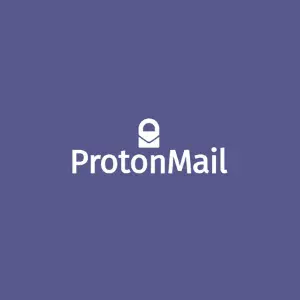Around 4 billion people were using one or another email service in 2020. And approximately 306 billion emails were sent and received every day worldwide.
One reason why email usage is so widespread worldwide is that it is, for the most part, free. And second, there’s no shortage of free email services — Gmail, Outlook & Yahoo Mail are popular examples. Despite this, more than 50 million people worldwide are now using a lesser-known email service called ProtonMail, which started in 2014.
The small yet substantial rise in popularity of the relatively new ProtonMail begs the question of why anyone would switch from older services like Gmail, Outlook & Yahoo Mail to ProtonMail in the first place. And if the switch wasn’t enough, many ProtonMail users also choose to pay to use the service.
The answer to this puzzle lies in the lack of privacy users are subjected to when using Gmail. The average email user might be under the impression that Gmail is free. But while users don’t pay monetarily, they pay with something more precious that most of them would value higher than money: personal data.
Google uses Gmail as a data collection factory. Email conversations & usage behavior help build a users’ ad profile, including data from Google’s other properties like Google Search, Google Maps, YouTube, etc. And the make matters worse; user data collection also increases the risk of data breaches. However, ad empires like Google are built on the foundation of data. So, realistically speaking, it would be irrational to expect Google to truly care about our privacy because it would go against its business model.
And this is the problem ProtonMail is trying to fix by building a foundationally privacy-conscious email service. ProtonMail’s business model is designed in a manner that would go against the interest of ProtonMail’s business not to prioritize user privacy.
Instead of keeping the email service entirely free and monetizing user attention with advertisements, ProtonMail makes money by charging users money in exchange for safeguarding their privacy. All communication that takes place through ProtonMail is end-to-end encrypted, meaning not even ProtonMail can read the content of your email conversations.
ProtonMail’s paid subscription model, even though heavier on the wallet of users, is better than the ad-supported Gmail model because the financial incentives of ProtonMail are aligned with that of users.
And to make private email communication accessible to everyone & get more users to switch to ProtonMail, the company offers a free plan. Apart from the free tier, which has limited features, the company provides three different tiers of paid subscriptions: Proton Plus, Proton Professional & Proton Visionary.
Proton Plus, targeted at individuals that need more email capabilities than the free plan offers, comes at a €5/month or €48/1-yr (€4/month) or €79/2-yrs (€3.29/month).
Proton Professional, targeted at corporations looking to ensure private and secure employee communication, comes at an €8/user/month or €75/user/1-yr (€6.25/month) or €129/user/2-yr (€5.38/month).
Proton Visionary, the top-tier plan, gets its name from a group of crowdfunding contributors who donated $550,377 in 2014 to make ProtonMail possible in the first place. Apart from gaining access to all existing features & highest limits, visionaries also get early access to new features and services. The Visionary plan is priced at €30/month or €288/1-yr (€24/month) or €479/2-yrs (€19.96/month).
Protonmail also has a business offering targeted at companies, whose pricing differs on the basis of the number of team members enrolling for the service. At the time of writing, more than 10,000 teams were subscribed to Protonmail’s business subscription.
ProtonalMail, even though the company’s primary product and source of revenue, is not the only way it makes money. To advance its foundational mission of democratizing privacy, the company also offers a VPN service called ProtonVPN, with similar pricing plans like ProtonMail. Donations & sales from ProtonMail’s privacy-oriented goodies also contribute to the company’s bottom line.
Now, as we saw earlier, ProtonMail’s business model is designed to put end-to-end encrypted communication at the heart of its functioning. But does service providing private communication have any more benefits than the fact that not even ProtonMail can read your email and your data belongs only to you? Yes, it does. Let me highlight some of those for you.
Even if a ProtonMail data breach were to happen, the content of your email would not be compromised because ProtonMail uses zero-access encryption. In other words, even if a hacker could access ProtonMail emails, they would not have the ability to decrypt them, as not even ProtonMail can decrypt them.
Besides being secure in a data breach, ProtonMail Switzerland-based operations are also a plus because the European region, and Switzerland particularly, has the strongest privacy laws. Since ProtonMail does not fall under the jurisdiction of US laws, such as the Foreign Intelligence Surveillance Act, it can’t be coerced into working for the NSA. Even if a data disclosure request meets Swiss courts’ high requirements, the maximum ProtonMail could do, is hand over encrypted emails, whose content would be inaccessible anyway due to end-to-end encryption.
Overall, if you’re keen to make sure your email communication stays private, ProtonMail undoubtedly beats Gmail. And, the best part is, you can get started for free.
Read More Case Studies
WhatsApp Business Model Case Study
Signal Business Model Case Study
Tesla Business Model Case Study.

